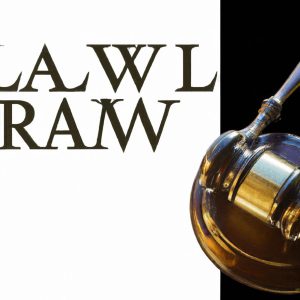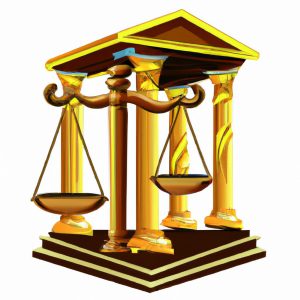rn
In the complex world of estate planning, the validity of a will carries immense weight during the probate process. As experienced attorneys in this field, we at Morgan Legal Group, located in bustling New York City, recognize the importance of understanding the intricacies surrounding will validity in probate proceedings. Join us as we explore the nuanced factors that play a role in determining the authenticity and legitimacy of a will in the eyes of the law.
Reevaluating the Validity of the Will
When it comes to assessing the authenticity of a will during the probate process, several crucial factors are taken into consideration. The following are some common methods used by courts to verify the validity of a will:
-
Witness Testimony – One of the initial steps in determining the authenticity of a will is gathering testimony from witnesses who were present at the time the will was signed. Witness testimony can help establish that the testator was of sound mind and not under any duress when creating the will.
-
Handwriting Analysis – In cases where doubt arises regarding the authenticity of a will, courts may employ handwriting experts to analyze the testator’s signature and handwriting throughout the document. This analysis can assist in determining whether the will was forged or altered in any way.
Expanding on the Verification Process
To further verify the validity of a will, courts may also implement other methods such as forensic examination and notary public verification. These techniques include:
- Forensic Examination: Specialized examination of the document to detect any signs of tampering or forgery.
- Notary Public Verification: Verification of the testator’s identity and mental capacity at the time of signing.
Challenging the Legitimacy of the Will in Probate Court
During the probate process, one common issue that can arise is the challenging of the validity of a will. This can occur for various reasons, such as concerns about the testator’s mental capacity at the time the will was created, allegations of undue influence by another party, or suspicions of fraud or coercion. In order to determine the validity of a will during probate, the court will typically consider a variety of factors and evidence.
One of the key factors that the court will look at is whether the will meets the formal requirements of the law. This includes ensuring that the document was properly signed, witnessed, and executed according to state laws. Additionally, the court may also consider the mental capacity of the testator at the time the will was created, as well as any evidence of undue influence or coercion. The ultimate goal of the court is to ensure that the testator’s final wishes are carried out in a manner that is fair and legally sound.
Factors Considered in Assessing Validity
To make a determination, the court will also consider other key factors such as:
- Formal Requirements of the Law: Proper signing, witnessing, and execution of the will.
- Mental Capacity of the Testator: Evaluation of mental capacity at the time of creation.
- Undue Influence: Assessment of any undue influence or coercion.
In Conclusion
In conclusion, the validity of a will holds great significance in the probate process. It is crucial to understand the various factors that contribute to determining the authenticity and legitimacy of a will. By following the necessary steps and meeting the requirements of the law, one can ensure that their final wishes are carried out as intended. As experienced attorneys in this field, we are well-equipped to guide you through the complexities of estate planning and probate proceedings.Examining Witnesses and Signatures in the Will
One important aspect of the probate process is ensuring the validity of the will. This requires a thorough review of the witnesses and signatures present on the document to ensure it meets all the necessary legal requirements for a valid will.
Scrutinizing Witnesses:
- The witnesses must be at least 18 years old.
- They should not be named as beneficiaries or heirs in the will.
- The witnesses must have seen the testator sign the will and acknowledge it as their own.
Examining Signatures:
| Signature | Requirement |
|---|---|
| Testator’s signature | Must be present at the end of the will. |
| Witnesses’ signatures | Must be present in the presence of the testator and each other. |
Seeking Legal Guidance for Will Validation During Probate
Validating the will of a deceased individual is a crucial aspect of the probate process. This involves carefully reviewing various factors to determine the legal binding and accuracy of the will. Seeking legal guidance during this time can help navigate the complexities of probate and ensure the will is validated in accordance with the law.
One key aspect of determining the validity of a will during probate is ensuring it meets the legal requirements set forth by the state. This includes verifying proper execution, signatures, and being free from any undue influence or coercion. Any amendments or codicils to the will must also be considered. Consulting with an experienced probate attorney can provide clarity on these requirements and safeguard the integrity of the will during the probate proceedings.
Q&A:
Q: What is probate?
A: Probate is the legal process in which a person’s will is validated and their estate is distributed according to their wishes after they pass away.
Q: How is the validity of a will determined during probate?
A: The validity of a will is determined by examining factors such as mental capacity, undue influence, and meeting legal requirements set by the state in which it was created.
Q: What is mental capacity and why is it important in determining the validity of a will?
A: Mental capacity refers to a person’s ability to understand the consequences of their actions, including creating a will. It is important in determining validity because if a person does not have mental capacity, the will may be challenged and deemed invalid.
Q: What is undue influence and how can it impact the validity of a will?
A: Undue influence occurs when someone exerts pressure or manipulation on the person creating the will, causing them to make decisions they wouldn’t have made otherwise. If undue influence is present, it can raise questions about the person’s true intentions and impact the validity of the will.
Q: What are the legal requirements for a will to be considered valid during probate?
A: In order to be considered valid during probate, a will must be in writing, signed by the testator, witnessed by at least two disinterested parties, and accurately reflect the person’s wishes for the distribution of their estate.
Closing Remarks:
Ensuring the validity of a will during probate is crucial to upholding the wishes of the deceased in a fair and just manner. By evaluating factors like mental capacity, undue influence, and proper execution, the courts can determine the legitimacy of a will. It is important to seek guidance from legal experts to navigate the complexities of probate and ensure your final wishes are upheld. Remember, a properly executed will provides peace of mind for both you and your loved ones. Thank you for reading.
 When a loved one passes away, one of the important legal processes that follow is probate. Probate is the court-supervised process of administering and distributing a deceased person’s assets and belongings according to their will or state laws. During this process, the validity of the will is determined to ensure that the final wishes of the deceased are carried out as intended.
When a loved one passes away, one of the important legal processes that follow is probate. Probate is the court-supervised process of administering and distributing a deceased person’s assets and belongings according to their will or state laws. During this process, the validity of the will is determined to ensure that the final wishes of the deceased are carried out as intended.
But how exactly is the validity of a will determined during probate? In this article, we will discuss everything you need to know about this important aspect of probate, including relevant keywords such as “validity of a will”, “probate process”, and “determining a will’s validity”.
Understanding the Basics of Probate
Before we dive into the specifics of determining a will’s validity, let’s first understand the basics of probate. When a person passes away, their assets and belongings are distributed among their heirs or beneficiaries according to their will. In order to carry out this process, the will must first go through probate.
Probate is usually required when the deceased person leaves behind a will, or when there are disputes over the distribution of assets. The probate process is overseen by the court to ensure fairness and adherence to the deceased person’s final wishes.
Determining the Validity of a Will
One of the main functions of probate is to determine the validity of a will. This is a crucial step to ensure that the will truly reflects the final wishes of the deceased and has not been tampered with or created under duress. Let’s take a look at the various factors that are considered when determining the validity of a will.
1. Execution of the Will
The first factor that is looked into is whether the will was executed properly. This means that the will must have been signed by the deceased in the presence of at least two witnesses, who must also sign the will. In addition, the deceased must have been of sound mind and not under any undue influence at the time of signing the will.
2. Date and Signature
The date of the will is also a crucial factor in determining its validity. The signature of the deceased must also be present on each page of the will. If there are any discrepancies in these two aspects, it can raise red flags and lead to further scrutiny of the will.
3. Inclusion of Necessary Provisions
A will must contain certain provisions in order to be considered valid. These include the nomination of an executor, the distribution of assets, and the revocation of any previous wills. If the will is missing any of these necessary provisions, it can be deemed invalid.
4. Witness Testimony
In some cases, witnesses to the will may be called upon to give testimony to validate the will. They must verify that the will was executed properly and that the deceased was of sound mind and not under any pressure to create the will.
5. Expert Opinion
If there are any doubts regarding the authenticity or validity of the will, the court may seek the opinion of experts such as handwriting analysts or forensic experts to gather more evidence.
What Happens If the Will is Deemed Invalid?
In some cases, the will may be deemed invalid due to the factors mentioned above. So, what happens then? In such a scenario, the distribution of assets will be determined by state laws of intestacy instead of the deceased person’s will. This could result in assets being distributed differently than what the deceased had intended.
In addition, if the will has been proven to be invalid due to fraud, coercion, or any other illegal actions, those responsible may face legal consequences.
Practical Tips for Ensuring the Validity of a Will
While the court ultimately determines the validity of a will, there are several steps that can be taken to ensure that the will is not deemed invalid. Some practical tips to consider include:
– Consult a lawyer to ensure that the will is drafted according to legal requirements
– Choose witnesses who are not beneficiaries of the will to avoid any conflict of interest
– Review and update the will regularly, especially after major life events such as marriage, divorce, or the birth of a child
– Keep the will in a safe and accessible place
– Inform loved ones and beneficiaries about the existence and location of the will
Benefits of Validating a Will during Probate
Validating a will during probate has several benefits, some of which include:
1. Ensuring Final Wishes Are Honored
The main purpose of probate is to ensure that the deceased’s final wishes are honored. Validating the will during this process ensures that their wishes are carried out as intended, giving them peace of mind.
2. Reducing Disputes and Conflicts
Validating the will also helps to reduce the risk of disputes among family members over the distribution of assets. This can help maintain family relationships and reduce the potential for costly legal battles.
3. Protecting Against Fraud
Validating the will during probate also helps to protect against fraud or any illegal manipulation of the deceased’s assets. This ensures that the correct beneficiaries receive their rightful inheritance.
In Conclusion
Probate can be a complex and emotional process, especially when it comes to determining the validity of a will. It is crucial to ensure that the will is executed and signed properly, and that all necessary provisions are included. This article has provided an in-depth look at how the validity of a will is determined during probate and the importance of validating a will to ensure the deceased’s final wishes are carried out as intended. By following the practical tips mentioned above, individuals can reduce the risk of their will being deemed invalid and ensure a smooth probate process for their loved ones.











